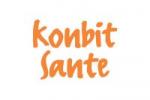Konbit Sante: The Earthquake's Consequences for Cap Haitian
 While the impact of the earthquake was felt most acutely in Port au Prince, the entire country has been affected. Hundreds of thousands of the displaced have returned to a long neglected countryside and to secondary cities like Cap Haitian. Nate Nickerson, Director of Konbit Sante, provides an update on how Cap Haitian is dealing with the influx and what is being done to meet the health needs of returnees. You can learn more about Konbit Sante's important work, and how you can support them, on their Website and Facebook Page.
While the impact of the earthquake was felt most acutely in Port au Prince, the entire country has been affected. Hundreds of thousands of the displaced have returned to a long neglected countryside and to secondary cities like Cap Haitian. Nate Nickerson, Director of Konbit Sante, provides an update on how Cap Haitian is dealing with the influx and what is being done to meet the health needs of returnees. You can learn more about Konbit Sante's important work, and how you can support them, on their Website and Facebook Page.











